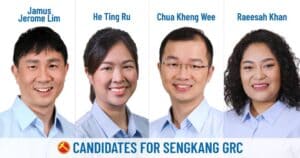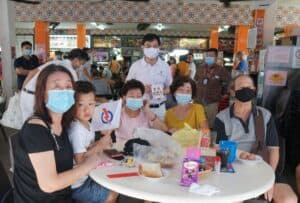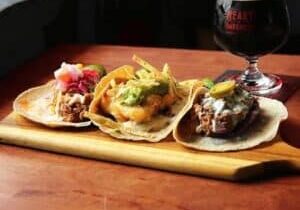Money can’t buy me love, sang the Beatles. Singapore’s ruling People’s Action Party (PAP) could also be singing a similar tune after the general election yesterday.
After the biggest pump-priming exercise in the island’s history, the PAP suffered a historic loss. For the first time, it was defeated in the electoral battle for two multi-member group representation constituencies (GRCs). Both went to the opposition Workers’ Party. The Workers’ Party not only retained the Aljunied GRC. It also won the new Sengkang GRC where the defeated PAP candidates included Minister in the Prime Minister’s Office Ng Chee Meng. It also retained the Hougang single-member constituency (SMC).
The PAP won 83 seats while the Workers Party won 10 seats. No other party won a single seat.

In any other country, this would be considered a landslide win for the ruling party. But this is Singapore where the PAP has won every election since independence in 1965 with more than 60 per cent of the vote. The PAP’s share of the vote dropped to 61 per cent from 69 per cent in the last election, in 2015. Prime Minister Lee Hsien Loong himself said he had expected a bigger share of the vote.
The fight this time was extremely close in two other GRCs.
The PAP won the West Coast GRC, helmed by the Minister S Iswaran, with a little over 51 per cent of the vote compared with more than 48 per cent for the Progress Singapore Party led by the veteran former PAP MP Tan Cheng Bock.
And Deputy Prime Minister Heng Swee Keat led the PAP to victory in the East Coast GRC with just 53 per cent of the vote compared with 47 per cent for the Workers Party. It’s true he is a newcomer to East Coast. He switched from his old constituency, Tampines GRC, only on Nomination Day to strengthen the PAP team in the East Coast.
Prime Minister Lee Hsien Loong went to the polls with the cards in his favour.
The government committed nearly S$100 billion to fighting the Covid-19 pandemic including handouts to the people and financial assistance to businesses to help them tide over the crisis. The Singapore healthcare system has also performed well. Only 26 people have died from the Coronavirus.
PM Lee called the elections at such short notice that the political parties had only nine days’ time to campaign for votes.
He need not have called elections now. His term was due to end only in April next year.
But he called the elections now because he wanted a strong mandate to tackle the health and economic crisis unleashed by the pandemic. Singapore faced hard times ahead, with people likely to lose jobs and businesses go bust, he said. So he went to the polls before the crisis deepened, before the going got worse. And yet the PAP suffered a historic setback.
The Workers’ Party must have especially savoured the victory in the Senkang GRC. Raeesah Khan, one of the Workers’ Party candidates for the constituency, apologised for her “insensitive” remarks on social media. The police investigated after police reports were made but found no offence committed, reported Channel NewsAsia.

I especially liked the way Deputy Prime Minister Heng and Nicole Seah thanked the East Coast voters after the election. The courtesy and civility were heart-warming.
Singapore, in my opinion, enjoys good government. The country has thrived under the PAP. PM Lee and his government have shown care and initiative in the midst of the pandemic. But there are Singaporeans who vote for the opposition and the Workers’ Party is gaining ground.
(Photos from Facebook)











